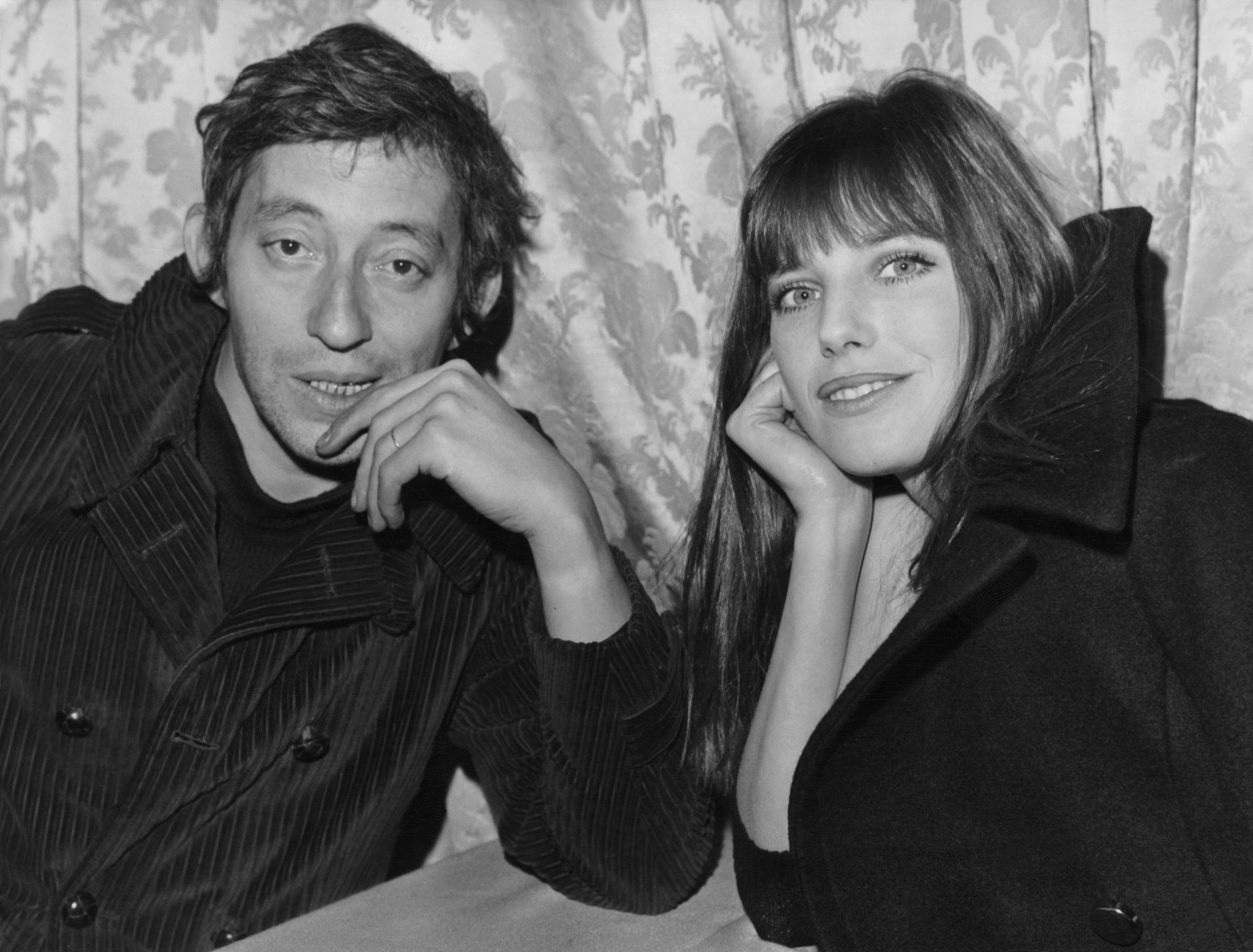Jane Birkin on making 'Je T'Aime...': 'It's about not believing in physical love. And Serge was right. Bardot left him, I left him'
Fifty years ago, the sound of a woman having an orgasm was a No 1 hit. Its singer talks to Simon Hardeman about sex, Serge Gainsbourg and heavy breathing

Your support helps us to tell the story
From reproductive rights to climate change to Big Tech, The Independent is on the ground when the story is developing. Whether it's investigating the financials of Elon Musk's pro-Trump PAC or producing our latest documentary, 'The A Word', which shines a light on the American women fighting for reproductive rights, we know how important it is to parse out the facts from the messaging.
At such a critical moment in US history, we need reporters on the ground. Your donation allows us to keep sending journalists to speak to both sides of the story.
The Independent is trusted by Americans across the entire political spectrum. And unlike many other quality news outlets, we choose not to lock Americans out of our reporting and analysis with paywalls. We believe quality journalism should be available to everyone, paid for by those who can afford it.
Your support makes all the difference.It was the year a female orgasm made it to the top of the charts. In 1969, Serge Gainsbourg and Jane Birkin’s “Je T’Aime… Moi Non Plus” became the first banned record and the first foreign-language single to reach No 1 in the UK. It still is, uniquely for such a pop hit, an erotic sound-collage of two people having sex.
Over a sultry, repetitive tune from a cheesy organ, the 22-year-old Birkin breathes, “je t’aime, je t’aime…”, while the 40-year-old Gainsbourg louchely growls “moi non plus” (“me neither”). It builds, via increasingly heavy breathing, to Birkin’s orgasmic chorusing of “tu vas, tu vas et tu viens/ entre mes reins” (“you come, you come and you go/ between my kidneys”). Yes, the words: I’ll come to them.
The song wasn’t written for Birkin. It was composed two years earlier at the behest of Brigitte Bardot, at that point probably the world’s most famous sex symbol, and with whom the French music producer and provocateur Gainsbourg was beginning an affair. Their recording, made in a vocal booth with very steamed-up windows, caused a scandal that led to her then-husband demanding its suppression (it was eventually released in 1986).
Over the next couple of years, Gainsbourg unsuccessfully tried to cajole several high-profile women to re-record the song with him, before playing it to Birkin. She was in Paris escaping the scandal she’d caused in the UK by showing her pubic hair in a scene in the film Blow Up, and the ending of her relationship with the film composer John Barry.
“I was Serge’s new date, in a way new girlfriend,” she tells me, “and went to meet him in his room in his parents’ flat in the 16th arrondissement, where there was an enormous life-size picture of Bardot on the wall. Serge couldn’t resist playing me the Bardot version and I realised what hot stuff it was. I imagined they’d been extraordinarily close during the recording. When he asked me if I would sing it, I said, ‘yes, if I don’t have to listen to it again,’ because I was so impressed by the first version.”
Unlike the earlier lovers they didn’t record in the same booth. “We were quite far from each other in a studio in Marble Arch,” she says, admitting that she imitated Bardot’s heavy breathing, but “I sang it an octave higher than she did, which gave it a kind of choirboy quality which pleased Serge.”
The song was banned by the BBC, the Vatican, and in other countries, and became a huge hit in the UK where the words just seemed to add to its sexy mystery. But they’re more than sweet nothings. When Gainsbourg sings “me neither” to Birkin’s “I love you”, it’s a line inspired by what Salvador Dali said about Pablo Picasso: “Picasso is Spanish, me too. Picasso is a genius, me too. Picasso is a communist, me neither.” Gainsbourg was a big fan of Dali, and, like with the Surrealist, it can be difficult to separate the genius, the provocation, and the bathos in his work. And the coming and going between her kidneys? According to Dr Cécile Laval, language expert at Greenwich University: “A more accurate translation, in this context, would be ‘between your loins’ and it’s very explicit. Gainsbourg is using the word because it rhymes, but it’s a controversial and explicit play with words.” And then Gainsbourg intones: “physical love is without issue”. What does this mean?

“He says that physical love doesn’t get you anywhere,” says Birkin. “It’s all about not believing in physical love meaning ‘I love you’. And he was right in that because Bardot left him, I left him.” Gainsbourg and Birkin, whose daughter Charlotte is an international star, split after 13 years though he continued to write for her and she is still singing his songs – she now performs them live on tour with an orchestra.
I ask if she and Bardot ever spoke about the song, and she says she never specifically but tells a hilarious story. “I did a very bad film with her a year or two later. Roger Vadim [the director] stuck us in bed together, and just said, ‘go on’, and neither of us quite knew what we were supposed to do. She was funny and sweet and she said, ‘perhaps we should sing something’, and I said, ‘that’s a good idea’, and she said, ‘we should sing “Je T’Aime... Moi Non Plus”’! I said, ‘oh crikey’, because I didn’t quite know how, so I said, ‘how about “My Bonnie Lies Over the Ocean”?’ So in the film you see us intertwined singing ‘My Bonnie Lies Over the Ocean’!”
Enjoy unlimited access to 100 million ad-free songs and podcasts with Amazon Music
Sign up now for a 4 month free trial (3 months for non-Prime members)
Enjoy unlimited access to 100 million ad-free songs and podcasts with Amazon Music
Sign up now for a 4 month free trial (3 months for non-Prime members)
“Je T’Aime…” has been a lasting inspiration – and not just to make babies to (Birkin says a man in Argentina told her, “I’ve had five children off that record”). It has had its own offspring – more than just the covers and the spoofs. Its closest rival, Donna Summer’s 1977 international hit “Love to Love You Baby”, full of moaning and groaning, arose out of a conversation Summer told Black Music magazine she’d had with producer Giorgio Moroder about how well a re-release of “Je T’Aime…” was doing. And Summer’s song was, in turn, heavily mined for Beyoncé’s early single “Naughty Girl”.
Beyoncé stopped short of including a simulated orgasm. Others have not been so coy. Led Zeppelin’s “Whole Lotta Love” took Robert Plant’s climactic whoops to the top five in the US in 1970 (it hadn’t been released as a single in the UK), though many radio stations and even the band’s US label cut the orgasmic section for airplay. A year later The Chakachas went top 10 in the US and top 30 in the UK with “Jungle Fever”, despite a BBC ban because of its uninhibited moans. Lil Louis’s extraordinary 1989 UK No 2 “French Kiss” is pretty much an orgasm set to music, or maybe even the other way round. Under extremely suggestive groans the crossover dance track, which mostly never changes key, slows and slows, and then gradually gains pace as it climaxes. Curiously, it wasn’t banned, though last year Ofcom censured a radio station for playing it.
Madonna made No 2 in the UK in 1990 by heavy-breathing her way through “Justify My Love”, though she doesn’t approach the heights of Birkin or Plant’s arousal (two years later she would emulate Birkin by going full-frontal, this time in her book Sex). And 2 Live Crew had US rap- and dance-chart success with “Me So Horny”, with its repeated aching vocal of “me so horny” sampled from the film Full Metal Jacket. This track, and the album it came from, was declared obscene in Florida for their explicit lyrics, and the band prosecuted. They won on appeal.
In the years since, heavy breathing has become an ever-more ubiquitous attempted short-cut to sensuality, especially in dance and R&B: Timbaland tried it in 2007 on his hit “Scream”, using Nicole Scherzinger and Keri Hilson to up his ante, while acts such as Disclosure, on their 2012 remix of “What’s In Your Head”, for instance, now routinely do the same thing.
But it’s hard to find anything that matches “Je T’Aime…” for representing two people, tenderly, having sex. Birkin tells me she believes the song she made with Gainsbourg is still unique in that. In fact, does anyone think that there has been anything released since 1969 to quite match “Je T’Aime…”? Me neither.
Join our commenting forum
Join thought-provoking conversations, follow other Independent readers and see their replies
Comments